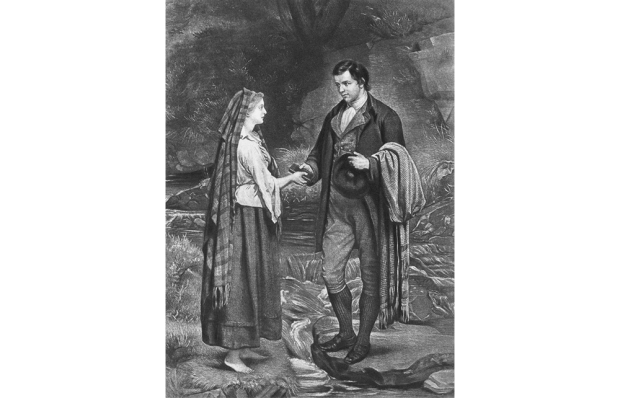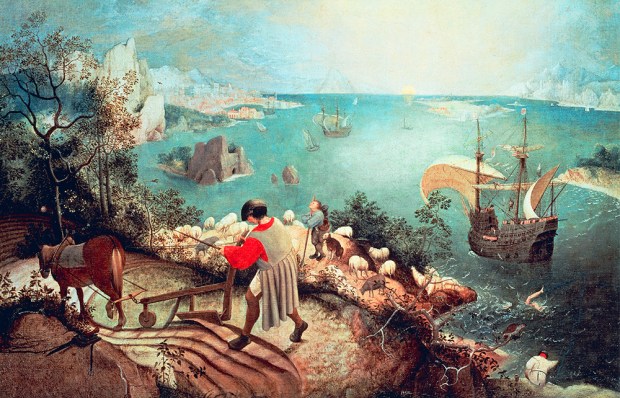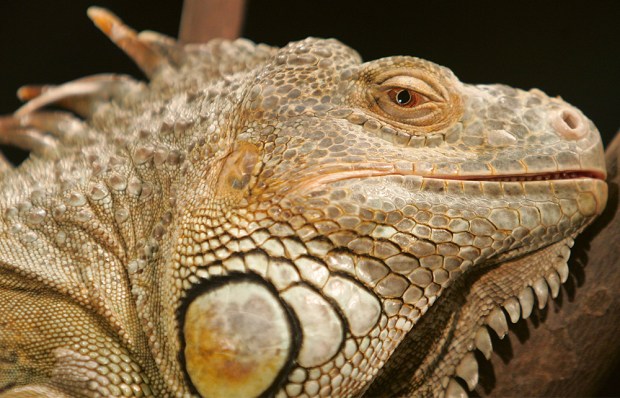In Competition No. 2950 you were invited to propose a new and ludicrous piece of legislation along with a justification for it.
Although Basil Ransome-Davies makes it into the winning line-up, some might argue that his proposal is far from ludicrous, given that cats are taking over the internet. Another suggestion that struck me as eminently sensible included Carolyn Thomas-Coxhead’s call for a ban on the wearing of protuberant rucksacks in busy places.
Chris O’Carroll’s neat meta entry, which demands a ban on ‘journals of news and opinion … sponsoring competitions that award prizes for light verse and frivolous comic prose’, made me smile, and I also commend D.A. Prince, who was not alone in considering that there is an urgent need for the equivalent of a Highway Code for pedestrians.
The winners take £30 each. Brian Murdoch pockets £35.
Nomenclatural Regulation
After representations from teaching unions, immigration focus groups, the police and the NHS, new rules for registering children come into force in 2018. All babies will be permitted one name only from an approved list, thus avoiding obvious racial and other differentiation. All names will be disyllabic with standard spelling, and variants are not permitted. Names will be allocated in alphabetical groups on a six-monthly basis, so that all children born in a given six-month period will have a name beginning with A, for example. Teachers and police (and publicans) can thus estimate from a name the age of the child. PQ, UVW and XYZ will be merged to avoid a superfluity of Quentins or Yvonnes. Disyllabic names will ensure paper-saving efficiency in forms and trisyllables will be permitted only for use with monosyllabic surnames. As popular choice, any middle initial (unattached to a name) may be used.
Brian Murdoch
The government’s proposed legislation on internet use has divided the country between those who believe it will divide the country and those who feel it will be almost unanimously resisted. In issuing a placatory statement, the prime minister emphasised that a total ban was not contemplated, only a ‘digitally metered’ limit, with penalties for exceeding it. ‘We used to lose billions in unproductive time because of strikes. Why should we treat cat videos any differently? We are playing catch-up. We can’t afford to waste time in idle goggling. I am, of course, personally fond of cats.’
Informed sources suggest that the restriction will apply in leisure as well as working hours and that prison sentences are being considered for repeat offenders. Nick Clegg urged ‘reluctant support for this sad but needful step’, while Labour leader Jeremy Corbyn described it as ‘beyond a joke’. The internet, meanwhile, is boiling.
Basil Ransome-Davies
‘But officer I got a letter from the vicar telling me to take the lead. How was I to know he meant the Passion Play?’
A Non-Homonym Scheme (NHS) would make it illegal to write identical words with different meanings. First to benefit will be the band Led Zeppelin who can restore the ‘a’ that was dropped lest irony-free fans mistook their title for a foremost airship. ‘Lead on Macduff’ would refer to an attack with molten metal, giving directors scope for sizzling gore. Meanwhile ‘Understudying the lead’ moves from thespians to politicians, capable at short notice of being malleable and poisonous.
For those who still lust after homonyms (the homonymphos) this NHS would provide them with e-patches to stick over the ‘a’, changing leads to leeds, the phonetic equivalent of methadone (not always available on another NHS, unsaveable when this legislation extends to cover homoacronyms).
John Samson
The Heated Beverage (Hazard in Open Places) Act 2016
Under this act, it is forbidden to carry non-alcoholic hot drinks in loosely sealed containers in any public place. The measure seeks to outlaw the high numbers of scalding ‘refreshments’ being carried, one-handed, by workers who, especially in urban settings, invariably attempt to carry other items. It is not merely that the drinks, being hot, are dangerous (they are). Nor simply that large mugs are advertising (ditto), conveying and conferring false status. Nor solely that the original dispensers of such beverages, formerly available in the workplace, are being driven into already crowded stations, streets and plazas (all true), at sometimes extortionate cost (proven), and with excessive sugar content (confirmed). It is, particularly and especially, that carrying such pick-me-ups renders the operation of a mobile phone as difficult as it is hazardous. This will not do. This law saves lives.
Bill Greenwell
Having stared bemusedly at everything from Duchamp’s urinal to Hoxton pavement scrapings, the general public will be delighted to hear that, from midnight, all conceptualist artworks will be legally redefined as jokes. Conceptual artists will receive only those grants and subsidies available to the humorist, which is to say none whatsoever. It will henceforward be illegal to claim any significance for a conceptual work beyond its ability to produce laughter in the viewer, be the work an infinitely looped video of Boris Johnson sneezing or a colony of ants housed in a sugar skull. Catalogues accompanying the exhibition of such works will be banned; conceptualist artworks may inspire merriment but academic jargon never does. In fact, this law will prohibit the exhibition of conceptual work in galleries, confining such work to touring provincial theatres, a network more suited to the category of entertainment to which the public know it belongs.
Adrian Fry
No. 2953: lovelier than a tree
You are invited to supply a sonnet that has the name of a tree hidden in every line (please italicise tree name). Please email entries, wherever possible, to lucy@spectator.co.uk by midday on 15 June.
Got something to add? Join the discussion and comment below.
Get 10 issues for just $10
Subscribe to The Spectator Australia today for the next 10 magazine issues, plus full online access, for just $10.
You might disagree with half of it, but you’ll enjoy reading all of it. Try your first month for free, then just $2 a week for the remainder of your first year.













Comments
Don't miss out
Join the conversation with other Spectator Australia readers. Subscribe to leave a comment.
SUBSCRIBEAlready a subscriber? Log in